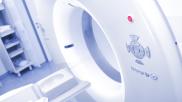| Today's News and Trends | | As radiologists continue to emphasize demonstrating their value to patient care, there has been a push to standardize the language used in radiology reports. According to a new commentary published in Academic Radiology, however, those in favor of such a shift could end up regretting it. As radiologists continue to emphasize demonstrating their value to patient care, there has been a push to standardize the language used in radiology reports. According to a new commentary published in Academic Radiology, however, those in favor of such a shift could end up regretting it. | | |
| The brains of men with internet gaming disorder (IGD) showcase issues not present in the brains of women with the same disorder, according to a study presented Nov. 28 at RSNA 2018 in Chicago. The brains of men with internet gaming disorder (IGD) showcase issues not present in the brains of women with the same disorder, according to a study presented Nov. 28 at RSNA 2018 in Chicago. | | |
| | Researchers from the University of Michigan (UM) have developed a virtual reality (VR) smartphone application designed to help patients avoid feeling claustrophobic by replicating what happens during an MRI. Researchers from the University of Michigan (UM) have developed a virtual reality (VR) smartphone application designed to help patients avoid feeling claustrophobic by replicating what happens during an MRI. | | |
| RadiologyInfo.org, web-based educational hub for radiology information, has launched RadInfo 4 Kids, a new age-appropriate section of the website with videos, stories and games to help children prepare for imaging examinations. RadiologyInfo.org, web-based educational hub for radiology information, has launched RadInfo 4 Kids, a new age-appropriate section of the website with videos, stories and games to help children prepare for imaging examinations. | | |
| New software that uses artificial intelligence (AI) to diagnose chronic thromboembolic pulmonary hypertension (CTEPH) will receive an expedited review from the FDA as part of the agency’s breakthrough devices program. The program, first established in 2017 as part of the 21st Century Cures Act, is designed to speed up the development of devices and ensure timely patient access. New software that uses artificial intelligence (AI) to diagnose chronic thromboembolic pulmonary hypertension (CTEPH) will receive an expedited review from the FDA as part of the agency’s breakthrough devices program. The program, first established in 2017 as part of the 21st Century Cures Act, is designed to speed up the development of devices and ensure timely patient access. | | |
| DeepRay, a new solution from Cambridge Consultants, uses artificial intelligence (AI) to improve distorted or damaged images. The company has said this technology could provide significant value to healthcare providers by improving medical imaging data. DeepRay, a new solution from Cambridge Consultants, uses artificial intelligence (AI) to improve distorted or damaged images. The company has said this technology could provide significant value to healthcare providers by improving medical imaging data. | | |
| | Imaging clinical decision support has long been widely considered a “when, not if” technology. But the smart money says to hold off at least a while longer before declaring the coast completely clear. What’s the holdup? In a word, complexity. Imaging clinical decision support has long been widely considered a “when, not if” technology. But the smart money says to hold off at least a while longer before declaring the coast completely clear. What’s the holdup? In a word, complexity. | | |
| |
|
| ![]() | |
|











